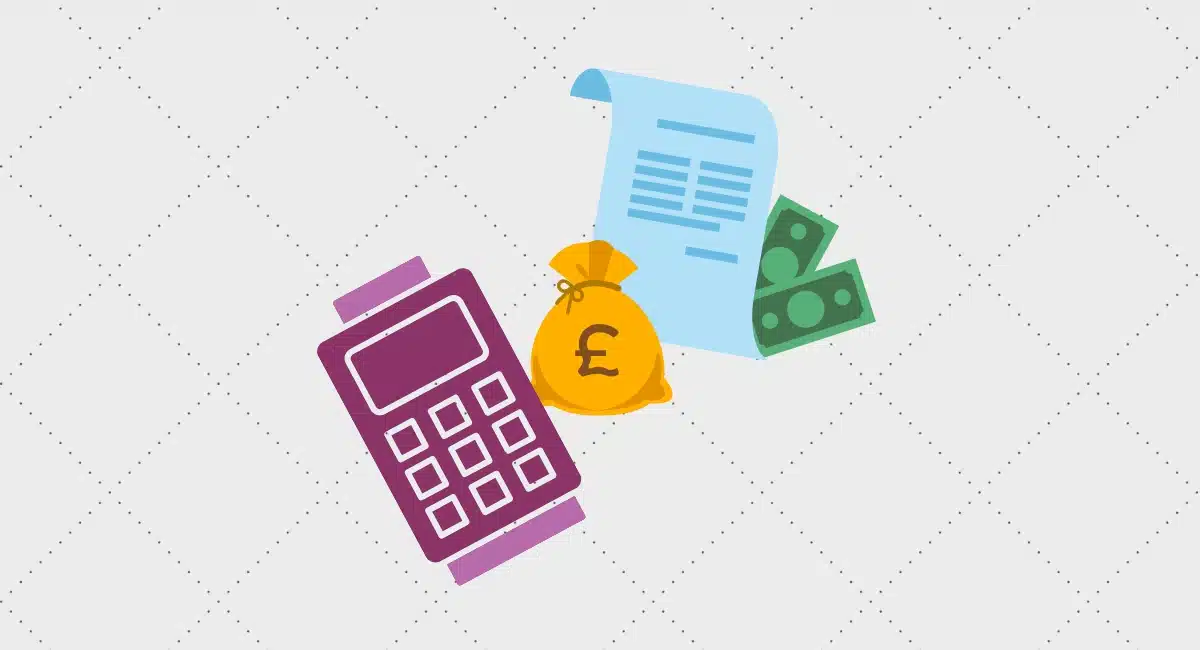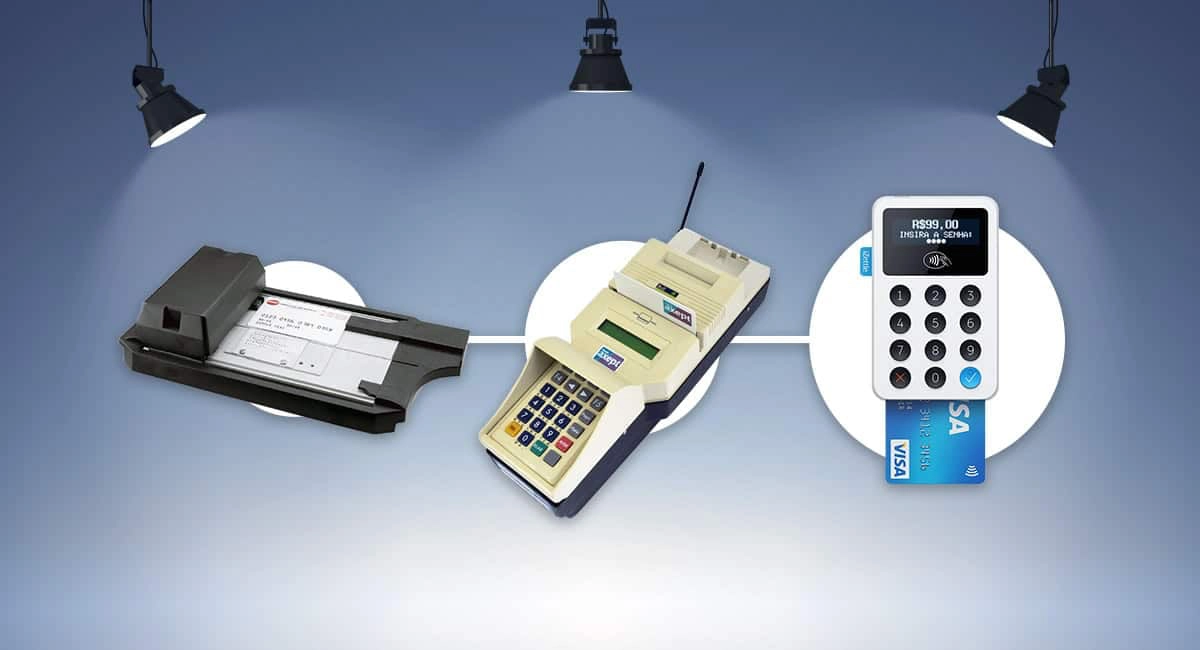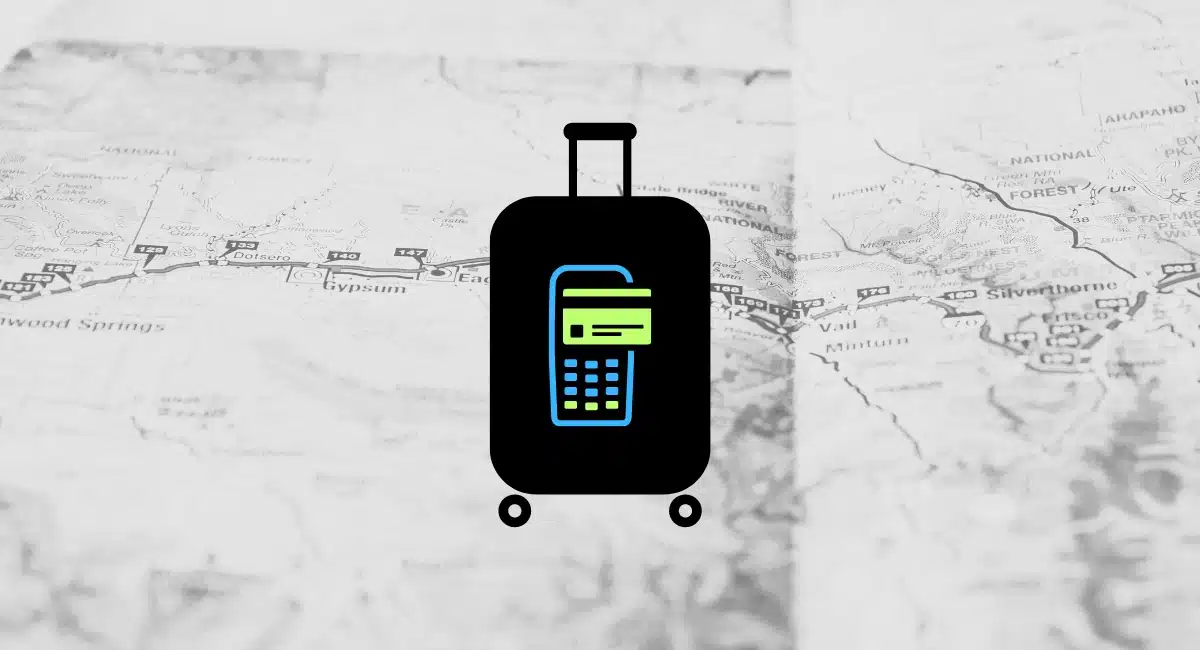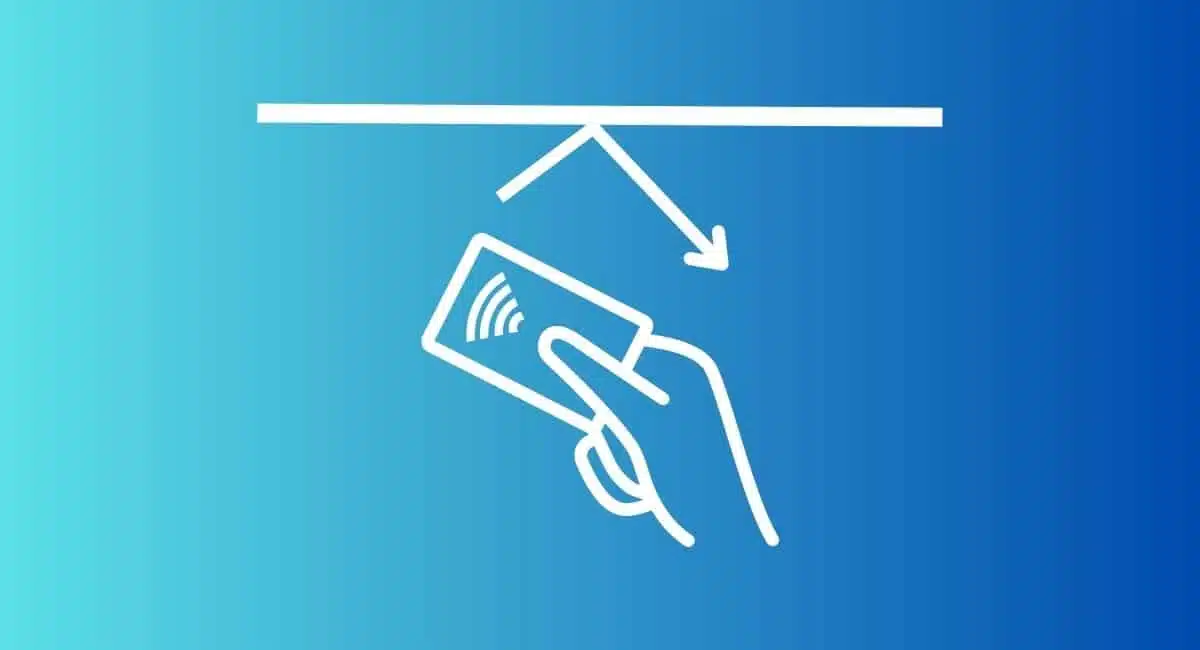The card machine market is denser than ever, meaning fees are more competitive and contracts more suitable for small businesses.
So how much is a card machine for a small business in the UK?
Simple card readers can be produced at a lower cost, whereas traditional or touchscreen card machines are pricier. The pricing structure, contract and other factors also determine costs.
Let’s look at the different types of packages and their typical pricing.
Costs in brief
The main two costs of a card machine are that of the hardware and card processing.
You may also have to pay for a merchant account, features like reports and events like refunds.
It varies hugely how much merchants pay individually. High-volume, large businesses with a consistent sales history get lower rates than small businesses with none.
The pricing structure also depends on whether you rent or buy the terminals. For example, a small business might pay:
- Rental: £20 per month to rent a high-quality card machine, 1% on average per transaction and miscellaneous account fees
- Purchase: £50 upfront to buy a card reader (one-off cost) and a 1.75% fixed rate for all transactions
The below table illustrates the fees of renting versus buying a terminal.
Summary of card machine charges:
| Purchase | Rental |
|---|---|
| No contract lock-in | 6-18 months’ contract |
| Upfront cost | |
| Reader w/app: £20-£50* WiFi/SIM terminal: £100-£250* Shipping: £0-£10* |
Account creation: £0-£150* |
| Monthly cost | |
| None | Terminal rental: £10-£30*/mo Merchant account: £0-£15*/mo Reporting: £0-£5*/mo Monthly min. charge: £20-£40/mo PCI compliance: £0-£20*/mo |
| Transaction fees | |
| 1.6%-1.75% (any card) | 0.2%-3.5% + 5p-60p (depends on card) + 0.5%-2.5% currency conversion |
| Other costs | |
| Refunds: 0%-1.75% Chargebacks: £0-£10 |
Refunds: £0.30+ Chargebacks: £0–£30 each Authorisation fee: 1p-3p Payouts: £0-£1.50 Terminal servicing: £0–£150 Exit fee: £0-£1200 |
*Excluding VAT.
| Purchase | Rental |
|---|---|
| No contract lock-in | 6-18 months’ contract |
| Upfront cost | |
| Reader w/app: £20-£50* WiFi/SIM terminal: £100-£250* Shipping: £0-£10* |
Account creation: £0-£150* |
| Monthly cost | |
| None | Terminal rental: £10-£30*/mo Merchant account: £0-£15*/mo Reporting: £0-£5*/mo Monthly min. charge: £20-£40/mo PCI compliance: £0-£20*/mo |
| Transaction fees | |
| 1.6%-1.75% (any card) |
0.2%-3.5% + 5p-60p (depends on card) + 0.5%-2.5% currency conversion |
| Other costs | |
| Refunds: 0%-1.75% Chargebacks: £0-£10 |
Refunds: £0.30+ Chargebacks: £0–£30 each Authorisation fee: 1p-3p Payouts: £0-£1.50 Terminal servicing: £0–£150 Exit fee: £0-£1200 |
*Excluding VAT.
Should you rent or buy a card machine?
You can either buy a card machine upfront or hire one for a monthly fee as part of a contract.
Differences between buying and renting a payment terminal:
Purchase
Rental
You can buy a cheap card reader without commitment, monthly costs or minimum sales volume requirements. These are “pay as you go” where you use it as little or much as needed, without cancellation charges if you stop using it.
Instead, extra tools for online and in-person payments are available. Many of these features are free, but you can, for instance, subscribe to more advanced point of sale (POS) systems.
This is much friendlier than paying hundreds of pounds for a standard card machine, or hiring a terminal with a complicated contract designed to keep you as a customer.
Renting a terminal means you’re paying a monthly fee to use a card machine. It’s often better for tailored fees and quality of service and hardware. But it also means you’re stuck in the contract until cancelled.
You may pay a lower monthly cost with a longer commitment, which is something stable businesses with enough certainty about the future can consider.
Contracts usually have an early termination fee equivalent to paying out the remaining charges of the contract period. This can amount to hundreds of pounds, but some providers let you off for less.
Often, you need to cancel 30-90 days before the end of the contract, or it auto-renews with a potential early termination fee for the new contract.
Many micro-merchants have in this way committed to a new term without their active consent, so we strongly recommend reading the small print when signing up.
Buying a card machine
App-based card readers (also called mPOS readers) are the cheapest card machines, because they depend on a connection with a smartphone or tablet. You’ll need to download the associated app on your mobile device, then sync it with the card reader over Bluetooth.
These devices are provided by payment facilitators like Zettle, SumUp and Square. They make their money through a transaction fee and add-on services in the card reader account, keeping the start-up cost down to a minimum.
The price of mPOS card readers are mostly in the region of £20-£50 excluding VAT. There’s usually no fee for shipping or account creation. These are the most popular options:
| Card machine | Standalone | Purchase price* |
|---|---|---|
| Square Reader | No | £19 |
| SumUp Air | No | £34 |
| Zettle Reader | No | £29–£59 |
| myPOS Go 2 | Yes | £29–£169 |
| SumUp Solo | Yes | £79–£139 |
| Square Terminal | Yes | £149 |
| Zettle Terminal | Yes | £149–£249 |
Payment facilitators may also offer standalone card readers that work wirelessly over WiFi and/or 4G or GPRS.
These uniquely-designed, independent card machines are priced in the region of £80-£250 excluding VAT. They’re more expensive than card readers because they work without a mobile app, but cheaper than traditional card machines.
If mobile connectivity is a feature, the terminal often comes with a built-in, free SIM card with data included.
The card machines you can rent are expensive to buy
What if you want a traditional card machine manufactured by Verifone or Ingenico? Or touchscreen smart POS terminal like PAX A920?
If you’re lucky to find them for sale, they cost in the region of £200-£800, usually somewhere in the middle. It’s virtually impossible to find any purchase prices online, but some merchant service providers can give you quotes upon request.
Unless you are covered by a warranty or maintenance package (extra cost), fixing or replacing these mainstream card machines can be expensive.
A card processing contract and transaction fees would also be payable on an ongoing basis so you’re able to use them at all.
Given the high upfront purchase price, the vast majority of businesses don’t buy these ubiquitous terminals. Instead, they’re rented or leased over a period of months or years, which includes everything needed to accept card payments.
Renting a card machine
If you go to a payment service provider or acquirer, you will be given options to rent a card machine rather than purchasing one.
This locks you into a monthly fee and contract commitment of typically 12-18 months, although shorter (1-6 months) contracts may be offered too. UK regulations now prohibit contracts longer than 18 months to protect businesses from unfair terms.
You can rent for the very short term, but this is usually more pricey and only recommended for one-off situations where you want the best card machine for a day, weekend or up to a month.
You may pay separately for a SIM card and data for a mobile terminal, but it is increasingly common to have mobile data included in the monthly hire fee.
The fixed, ongoing cost depends on the terminal model and falls in the region of £10-£30 + VAT per month.
A stationary, countertop terminal is typically cheapest. WiFi/portable terminals are in the mid range, while the 4G/mobile card machines with a SIM card incur the highest monthly cost.
Some providers don’t charge for setting up, but it’s common to pay an upfront account creation fee, installation cost for the chip and PIN machine and/or a general setup fee. You may also have to pay for shipping.
| Purchase – transaction fees |
Rental – transaction fees |
|---|---|
| 1.6%-1.75% (any card) |
0.2%-3.5% + 5p-60p (depending on card type) |
| Other fees may apply to: | Other fees may apply to: |
|
|
Rates if you purchase a card machine
Purchasing a card machine comes with the simplest pricing model: a pay-as-you-go fee per successful card transaction.
The leading options from SumUp, Square and Zettle charge the same fixed rate for domestic, foreign and premium debit and credit cards – very simple to get your head around.
Though the rates are the same for everyone, a monthly turnover above £10k-£16k usually qualifies you for lower fees. All you need to do is contact the card reader company to ask for lower rates based on your high turnover.
Rates if you rent a card machine
With a rental contract, transaction fees depend on:
- Sales volume
- Contract length
- Business type (high-risk businesses get higher fees)
- Types of cards accepted
This information will get you a custom quote to peruse.
Variable fees can save money if you mostly accept domestic consumer cards from Visa and Mastercard (lowest fees), whereas foreign, premium credit cards (highest fees) can bump up costs considerably.
Typical custom transaction rates
| Card accepted | Typical custom rates |
|---|---|
| Consumer debit Visa and Mastercard, domestic | From 0.2% |
| Consumer credit Visa and Mastercard, domestic | From 0.3% |
| Commercial Visa and Mastercard, domestic | 0.5%-2% |
| American Express | 2.5%-3.5% |
| International cards | From 1.5% |
A currency conversion fee of 0.5%-2.5% is usually added to transaction fees if a foreign currency is converted from a non-UK card. Many purchased card readers do not have this charge, though.
Other transaction charges may apply to a rental plan, for example if a card payment is ‘uncaptured’ (not completed) or a specific card type incurs an additional check. These extra costs are hard to predict but typical for rental.
Different pricing structures
A rental agreement can offer blended or interchange++ transaction pricing.
Interchange plus plus
Reflects the true cost of a card transaction, as it charges the exact fees of card networks (e.g. Visa, Mastercard), card issuer (cardholder’s bank) and acquiring bank processing the payment (e.g. Worldpay, Barclaycard), plus a markup by your payment service provider.
Each transaction may be charged all of these fees, depending on the type of card:
- Interchange rate: 0.2-2.25%
- Card scheme fee: 3-10p + 0.01-1%
- Acquirer/markup fee: 20-60p
Blended fees
Simplifies the true cost by ‘blending’ the above interchange, card scheme and markup fees into a simple fee applicable to a broader umbrella of transactions.
Blended pricing is good for predictability, but might not be the cheapest option overall.
Blended transaction fees on a rental plan are typically 0.6-3.5% + 5-25p, depending on the card and business category. Payment facilitators like SumUp only apply one percentage rate to all transactions – the simplest kind of blended fee.
Don’t forget chargeback and refund fees
Whether you buy or rent, other costs may apply to certain transactions, mainly chargebacks (£0-£30) and refunds (e.g. £1.50).
With chargebacks, you will also lose the transaction amount if the customer dispute was resolved in the buyer’s favour.
Often myriads of (other) costs on a rental contract
A rental contract with a merchant service provider or acquirer may include a range of unavoidable extra changes for individual parts of the service.
Such additional fees are a normal part of contractual packages, whereas payment facilitators tend to avoid them.
Card machine hire contracts may charge these fees:
| Rental plan items | Cost |
|---|---|
| Setup fee | £0 – £150 |
| Merchant account | £0 – £15+/month |
| Online access to reports | £0 – £5/month |
| Paper statements | Fees sometimes apply |
| Monthly minimum charge | £20-£40 depending on turnover |
| Payouts | £0 – £1.50 per batch |
| PCI-DSS compliance | £0 – £250/year |
| Terminal servicing | £0 – £150 per instance |
| Early termination | £0 – £1200 (buyout of contract) |
Merchant account fee
Transactions have to be processed through a merchant account. Unless the terminal provider gives you a packaged deal with a merchant account included, you will likely pay a setup fee plus ongoing monthly or annual charges for it.
If you want to accept American Express, an additional merchant account usually has to be set up directly with Amex.
Monthly minimum service change
Many contracts require that you pay a minimum in transaction charges a month. If, for example, your monthly minimum is £25 and transaction fees only amount to £10, you will pay a total of £25 that includes the (less than £25 total) transaction fees you legitimately owed that month.
Reporting
You should as a minimum be able to view transaction charges and payments processed in an account online. However, some companies will charge a monthly fee for even the most basic functions like exporting sales to Excel or getting a paper copy of transactions.
PCI compliance
You may have to fill in PCI-DSS compliance paperwork in order to comply with card industry standards. This may be 100% your responsibility where you set this up yourself (can cost extra if support is required), or you may submit the documentation for free through your terminal provider.
If you have not set this up in the first few months, you may have to pay a PCI non-compliance fee every month you don’t have this in place (e.g. £9.99 per month).
Payouts
Some merchant accounts charge per payout batch, e.g. £1.50 every time transactions are paid into your bank account. If you require next-day payouts, this fee may be higher. In recent years, more card machine providers have scrapped the payout fee altogether, though.
Terminal replacement and servicing
Companies offering next-day terminal replacement usually charge for it. If faults fall under the warranty or the contract covers repairs, you may be able to avoid this cost altogether, but any urgent servicing is rarely free.
Terminals without lock-in: See pricing for the top budget card machines
Our advice: get several quotes, think ahead
With a card reader from a company like SumUp or Square, you know fees are the same for everyone – and without contract lock-in or surprise charges.
Though their fixed transaction rates can seem fairly high, your business could qualify for lower fees if it makes over £100k annually (even as low as £60k for SumUp).
Renting a card machine is riskier if you’re unsure about your business’ success in the next few years. On the other hand, you might get more attractive quotes based on the business type, turnover and contract length.
Familiarise yourself with the types of costs expected with a rented card machine and compare quotes from several companies to avoid getting a bad deal.
Last but not least: read the fine print before deciding, because sales reps can be pushy.




